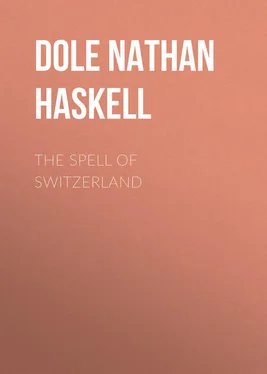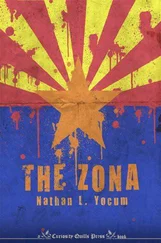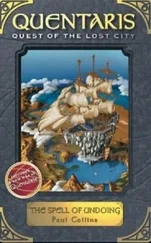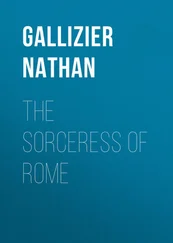Nathan Dole - The Spell of Switzerland
Здесь есть возможность читать онлайн «Nathan Dole - The Spell of Switzerland» — ознакомительный отрывок электронной книги совершенно бесплатно, а после прочтения отрывка купить полную версию. В некоторых случаях можно слушать аудио, скачать через торрент в формате fb2 и присутствует краткое содержание. Жанр: foreign_antique, foreign_prose, на английском языке. Описание произведения, (предисловие) а так же отзывы посетителей доступны на портале библиотеки ЛибКат.
- Название:The Spell of Switzerland
- Автор:
- Жанр:
- Год:неизвестен
- ISBN:нет данных
- Рейтинг книги:5 / 5. Голосов: 1
-
Избранное:Добавить в избранное
- Отзывы:
-
Ваша оценка:
- 100
- 1
- 2
- 3
- 4
- 5
The Spell of Switzerland: краткое содержание, описание и аннотация
Предлагаем к чтению аннотацию, описание, краткое содержание или предисловие (зависит от того, что написал сам автор книги «The Spell of Switzerland»). Если вы не нашли необходимую информацию о книге — напишите в комментариях, мы постараемся отыскать её.
The Spell of Switzerland — читать онлайн ознакомительный отрывок
Ниже представлен текст книги, разбитый по страницам. Система сохранения места последней прочитанной страницы, позволяет с удобством читать онлайн бесплатно книгу «The Spell of Switzerland», без необходимости каждый раз заново искать на чём Вы остановились. Поставьте закладку, и сможете в любой момент перейти на страницу, на которой закончили чтение.
Интервал:
Закладка:
He boasts of his increasing love for Nature:
“The glories of the landscape I have always enjoyed; but Deyverdun has almost given me a taste for minute observation, and I can now dwell with pleasure on the shape and color of the leaves, the various hues of the blossoms, and the successive progress of vegetation. These pleasures are not without cares; and there is a white acacia just under the windows of my library which, in my opinion, was too closely pruned last Autumn, and whose recovery is the daily subject of anxiety and conversation.
“My romantic wishes led sometimes to an idea which was impracticable in England, the possession of an house and garden, which should unite the society of town with the beauties and freedom of the country. This idea is now realized in a degree of perfection to which I never aspired, and if I could convey in words a just picture of my library, apartments, terrace, wilderness, vineyard, with the prospect of land and water terminated by the mountains; and this position at the gate of a populous and lively town where I have some friends and many acquaintances, you would envy or rather applaud the singular propriety of my choice.”
He says further on in the same letter:
“The habits of female conversation have sometimes tempted me to acquire the piece of furniture, a wife, and could I unite in a single woman, the virtues and accomplishments of half a dozen of my acquaintance, I would instantly pay my addresses to the Constellations.”
The requirements were that one should be as a mistress; the second, a lively entertaining acquaintance; the third, a sincere good-natured friend; the fourth should preside with grace and dignity at the head of his table and family; the fifth, an excellent economist and housekeeper; the sixth, a very useful nurse!
It was suggested to him by Madame Necker that he might do well to marry, though she assured him, with, perhaps a bit of malice, that to marry happily one must marry young. He thus expressed himself regarding the state of celibacy: —
“I am not in love with any of the hyaenas of Lausanne, though there are some who keep their claws tolerably well pared. Sometimes, in a solitary mood, I have fancied myself married to one or another of those whose society and conversation are the most pleasing to me; but when I have painted in my fancy all the probable consequences of such a union, I have started from my dream, rejoiced in my escape, and ejaculated a thanksgiving that I was still in possession of my natural freedom.”
Perhaps it was fortunate that Gibbon did not marry Suzanne; we might not have had the History of Rome; we should not have had Madame de Staël!
CHAPTER VI
AROUND THE LAKE LEMAN
ITwas a cozy and restful day and pleasant indoors, sheltered from the driving rain. I had a fine romp with the children in the nursery. I was delighted to find that the oldest, Lawrence, – a fine, manly little chap with big brown eyes – was fond of music and was already manifesting considerable talent. The twin girls, Ethel and Barbara, were as similar as two green peas; they were quick-witted enough to see that I could hardly tell them apart and they enjoyed playing little jokes on me. Toward the end of the afternoon, becoming restless from being so long indoors, I proposed taking a walk. Lawrence wanted to go with us, and his mother dressed him appropriately, and he and his father and I sallied out together.
We had hardly reached the big bridge when Will uttered some words which I could not understand. “What is that?” I asked.
“It is a weather proverb in the local dialect.”
“Please repeat it slowly.”
He did so: “Leis niollez van d’avau devétion lo sélau.”
“Give it up,” I said.
“It means: ‘When the clouds fly down the lake and give a glimpse of the sun, it is a sign of fair weather.’ The wind has changed.”
He had hardly uttered this prophecy when there was a break in the west and a gleam of sunlight flitted across the upper part of the town, though down below all was still smothered in grey mist.
“It is surely going to be pleasant to-morrow, and I think we had better arrange to make a tour of the lake. We can go either by the automobile or on the water by motor-boat. We can do it by the car in a day; but if we go by boat we might have to be gone a couple of days or even longer. A storm like this is likely to be followed by a spell of fair weather.”
“I should vote for the boat,” said I.
The next morning was perfectly cloudless. The air was deliciously bracing and everything was propitious for our trip. We had an early breakfast. Emile was waiting to take us down to the quai at Ouchy. A graceful – and from its lines evidently swift-running – motor-boat was moored alongside the Place de la Navigation. The chauffeur drove off to leave the car at a convenient garage and, while we were making ourselves at home on the boat, he came hurrying back to take charge of the engine. This paragon was equally apt on sea and on land. We were soon off and darting out into the lake which in the early morning, when no wind had as yet arisen, lay like a mirror. Looking back, we had the steep slope of the Jorat clearly outlined; the city of Lausanne clinging to its sides, and the cathedral perched on its height and dominating all with its majestic dignity. Gleaming among the trees could be seen dozens of attractive villas – “the white houses,” as Dumas cleverly said, resembling “a flock of swans drying themselves in the sun.” Many of these would be worthy a whole chapter of history and romance, the former “noble” possessors having connected themselves with literary, educational, or military events in all parts of Europe. But, seen from the lake, they were like the details of a magnificent panoramic picture.
As a wild duck flies, the distance from Ouchy to Vevey is only about twelve miles across the blue water; but we hugged the shore, so as to get the nearest possible views. Emile was an admirable cicerone and pointed out to us many interesting places. As we came abreast the valley of the Paudèze we could see some of the eleven arches of the viaduct of La Conversion.
“You see that hill just to the East of the city,” said Will. “That is Pierra-Portay. There, in 1826, some vintagers found several tombs made of calcareous stone and they were quite rich in objects of the stone age – hatchets and weapons and other things, besides skeletons. All along the shores of the lake similar discoveries were made. The people didn’t know much about such things then, and many were opened carelessly and the relics were often scattered and lost. I think in 1835 about a hundred were opened. In one of them, covered with a flat stone, there were articles from the bronze age – spiral bracelets, bronze hatchets, brass plaques ornamented with engraved designs. Probably when they were made the lake was much higher. There are traditions that the water once bathed the base of the mountains, and that there were rings, to fasten boats to, on Saint Triphon, which must then have been an island. Almost every town along the shore has its prehistoric foundation. The name of the forest beyond Lausanne, – you can see it from here, – Sauvabelin, which means sylva Bellini , suggests Druidical rites and about thirty tombs were found there with interesting remains. And just above the Mont de Lutry, above the viaduct – where you see those arches – a huge old oak-tree was struck by lightning and overturned; in its roots were a number of deep bowls, cups and earthen plates bearing the name of Vindonissa, which was an important Roman settlement, and also fragments of knives and other copper utensils, probably used for sacrifices, perhaps hidden there by some Druid priest.”
It was a queer notion to spring this recondite subject when we were flying along the crystalline waters of the lake and new splendours of scenery were every second bursting into view. I did not even care very much to know the names of the multitudinous mountains that seemed to be holding a convention on the horizon, though Emile told us that those were the Rochers de Verraux, those the Rochers de Naye, and others various Teeth – La Dent de Jaman, La Dent de Morcles, La Dent du Midi. I did learn to distinguish the latter, and also Le Grand Muveran, and especially La Tour d’Aï, where I knew that a wonderful echo — un écho railleur – has her habitat and mocks whatever sounds are flung in her direction.
Читать дальшеИнтервал:
Закладка:
Похожие книги на «The Spell of Switzerland»
Представляем Вашему вниманию похожие книги на «The Spell of Switzerland» списком для выбора. Мы отобрали схожую по названию и смыслу литературу в надежде предоставить читателям больше вариантов отыскать новые, интересные, ещё непрочитанные произведения.
Обсуждение, отзывы о книге «The Spell of Switzerland» и просто собственные мнения читателей. Оставьте ваши комментарии, напишите, что Вы думаете о произведении, его смысле или главных героях. Укажите что конкретно понравилось, а что нет, и почему Вы так считаете.












